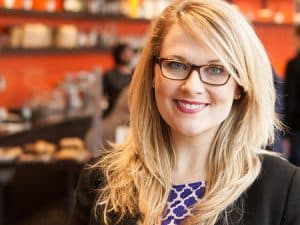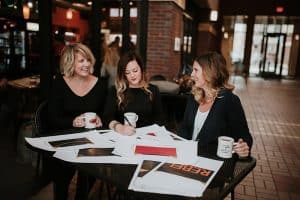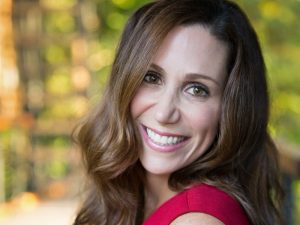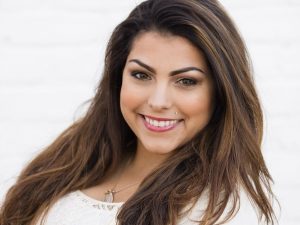Stephanie Allain produces award-winning films by writer-directors of color that make headlines, launch careers and shape the cultural landscape.
She started her film career as a reader at CAA and worked as a Story Analyst at 20th Century Fox, Warner Bros and Columbia Pictures. In 1990, she supervised John Singleton’s Boyz N the Hood and was promoted to Senior Vice President of Production at Columbia Pictures where she worked for a decade. After a brief stint as President of Production for Jim Henson Pictures, she founded Homegrown Pictures
in 2003. Hustle & Flow, Beyond the Lights and Dear White People are among her celebrated titles.
From 2011-2016 she served as Director of the LA Film Festival turning it into the most diverse film festival in the world, attracting celebrated
artists and tens of thousands of attendees.
She is a member of the Academy of Motion Pictures Arts and Sciences, Writer’s Guild of America, Producers Guild of America and the Dramatists Guild of America. She sits on the board of Women in Film and teaches film at USC Peter Stark Program and UCL Entertainment Studies.
What’s the best career advice you were ever given?
I think the best career advice has been to basically trust my gut. Because this is a business of opinions, truly, as William Coleman said, “Nobody knows nothing.” So, I think it’s important to focus on what’s important to you, what makes you passionate, and let that lead the way. And yeah, I learned that early on, I think probably through my two mentors, Don Steele and Amy Pascal.
I wanted to get you to expand on something that you said during filming, which I loved. You talked about being able to pick up the phone and call Kathleen Kennedy and have a conversation, get that advice and get that feedback that’s so valuable to you. What do people who don’t work in Hollywood who – earlier this year, we all watched Ryan Murphy’s “Feud” and, of course, the driving force of that was Joan Crawford and Bette Davis battling each other, but there was a blowback to that. There’s this lingering stigma there. What do people who don’t work in Hollywood need to know about women who work together?
Well, first of all, I think that women who work together in Hollywood have a sense of sisterhood. It’s really true. I mean, we’re already up against a system, the old boys’ network, just the traditional way that people think and move, and their biases, which we’re conditioned, just as a culture. So, when you recognize another woman who has the skill and the temperament and the talent, then that’s an opportunity. And I think that oftentimes, at this point in my career, I’m calling women to help me produce, because there’s a lot of being on set for 12 to 16 hour days. I’d love to have help, you know, and so, I actually cultivated my mentee, who became my assistant, who is now my producing partner.
And it’s fantastic because she’s so capable, and she brings a different vibe to it. So she’s, you know, what, a lot younger than I am, and so I send her out because she’s so cute, and people love her. I send her out to do things that maybe I don’t want to do, and yeah. I love it. I think that working together with other people, especially women, is a phenomenal opportunity. And I think in Hollywood, I think people recognize that. And I would like to dispel that notion that women are cat scratching or trying to claw somebody else down.
In moments of uncertainty or doubt that you’ve had, especially being a female in this industry, what do you do to kind of build yourself back up? Where do you go to get that support?
That’s so good, that’s so good. You know, that’s one of the most important things, I think, in Hollywood, is you’re gonna have failures. It just happens. And sometimes the movie’s fantastic and it tests great, but by the time you get through the marketing or whatever, it doesn’t work. So, I learned through failure that, you know, you have to dust yourself off. You have to get back out there. And that’s where the real test of character, I think, is. Because it’s hard to show your face when they’ve been splashing your movie everywhere and then everybody looks at the box office results, and you know, it’s not 1, 2, or 3. Then what happens?
So for me, I had kids before I started in the business. So, and now my children are actually working with me, and I’m working with them, and they’re doing their own thing, so family is really really important. I’m married to a great man, my kids, my mom, just having a real life. Because I think sometimes you get so involved in the fantasy world of Hollywood and making the movies that you neglect, like, what happens when you go home. Like, what is there when you get home? And luckily, I was crazy enough to have a kid very, very young, so I always had that sort of touchstone.
And, in fact, that’s why I got into the business, because I was an artist, I was a dancer, I was a Bohemian, and then I was pregnant, and I was like, “Oh! I have to work now, do something. What am I good at?” And I was like, “I’m good at reading.” And it popped up there was a job called “reader,” so I was like “Perfect! I’m taking that job, I can nurse and turn the pages,” so yeah. It’s family and just doing real things, just going, just being a real … I’m a fan. I go to the movies. I go to the Arclight to see movies. You know, I don’t like watching things like, you know, just during award season or whatever. I just think it’s really important to be out there in the world with the people.
That’s the reason why you know, like, zeitgeist. It’s sort of like, if you’re not in the real world, than how do you know what … Not so much following trends, but just, when you read something, you know this is going to make a mark. This is important to do now. And, Illeana said something funny, which I think is really true, which is, “I’ve been ahead of the curve. Sometimes being ahead of the curve is as difficult as being behind the curve, because you’re waiting for the world to sort of catch up.”
I did this movie “Something New” many years ago, and it was Sanaa Lathan, a black woman who falls in love with a white guy. And it tested great, and it was so wonderful and sweet, and it was emotional. And at the time, people, we realized that women, black women especially, did not want to actually go to the theater, even though we knew that the purpose of the film was a lot of black women can’t find black men, and so they’re looking outside for love. But it was just slightly … Like, if we made that movie now, oh man, it would be a huge hit. What are you going to do?
What is a typical day look like in your world?
A typical day is, I wake up very early, I work out, usually it’s either yoga or Pilates or a walk with my husband. I like to get that out of the way. And then I go into an office, it’s a collective office in Hollywood. Hollywood is so happening now. Oh my god. It used to be so, sort of, you know, run down and skeezy, but now everybody’s in Hollywood. So this is a beautiful office, it’s called NeueHouse, and it’s so diverse in there, I love it. It’s beautiful.
It’s like, it took me a while to get used to it, because it’s like you’re on vacation in a swanky hotel. Like, “Back to work? What’s going on?” But I have Mel Jones, who is my producer partner, and Gabby, who is our assistant, and we go there every day and we work. We talk about scripts, we talk about movies, we plan, we budget. And we have meetings, we meet with all kinds of people. I usually do that. I knock off early because I get up early, so literally, probably, if I’m not shooting … If I’m not shooting, by 5:00 I’m like, “I’m done. I’m going home.”
My kids are all grown, so I don’t have that, but yeah. I like to relax. We watch a lot of movies. And yeah, that’s pretty much the day. Unless I’m shooting something, and then that’s very different because there’s a call time, long hours, this and that, and you know, I just made … The last two movies I shot in Virginia, so it’s a different experience when you’re not at home and living out of a hotel. But yeah, that’s my day. A lot of reading. Lots and lots of reading.

As someone who has clearly studied film and women’s roles in film, I have been so educated watching, first, this year, but then this series last year. So I’m thrilled that TCM is continuing with spotlighting Trailblazing Women in Film. But the biggest jaw-dropper for me has been that women actually had many more roles in filmmaking in the silent era.
I wanted to bring that point up! It’s like sound silenced the women, in a way. Which I, yeah. Dang it! I wanted to bring that up. But I think it was because the budgets got bigger. Conscious bias tells us that men are better at money than women. This is what’s drilled into us. And I think also, because it became such a fancy job, a showy job to run a studio, be an executive, like that, that women did get marginalized. They did get sort of pushed to the side. Editing started with women. Women were editors before guys came into the editing room because they didn’t want to do it. They were like, “Let her do it. Go in the dark in the back and come back with something.”
You spoke about having a child and how that started your career path. Can you talk a little bit about kind of balancing the act of motherhood and, you know, pursuing your career?
One word. Two words. My mom. I could not have done what I did without her. She … We’re from the South, we’re from New Orleans, and a long line of matriarchs, and each successive generation helped with the children. And she was an educator, a school teacher … By the time … While my kids were growing up, she was there for me. She would pick them up from school. I never worried, because it was my mom, you know? It wasn’t like it was hired help. It was my mom. And they have an incredible relationship with her. So, that has really freed me up to pursue, to travel, to take jobs. I’m getting emotional because she’s the real deal.
What do young women who are entering this business or going to college to be in this business, what do they need to know?
Well, number one, they do need to know that it’s tough. It’s a tough business. I really tell young people, “Don’t do it unless you have to. You have to have that passion. If you can walk away, run.” And then, once you say, “Okay, I’m in it,” the most important thing, and it’s intersectionality, because I’m a woman, I’m also a black woman. I have always done more work than everybody else.
Right, so when I was a reader at a studio, you get assigned three or four scripts, everybody mixes. I would read them all. So when we come back on Monday and we’re talking about it, I can talk about your script, I can talk about your script, I can talk about my script. That attention to the work ethic I think is really, really vital, because that helps eliminate some of the biases. Because they see you, and they go, “Oh, wow. She’s a powerhouse.” I think it’s really important to do the work. Do the homework.
In Hollywood, the most important homework you can do is to read, because everything starts with a script. So, the more you read, the more you know what’s good, the more you know what’s wrong with something, because you’ve read so many things that by page 10, you’re like, “Wait a minute. Nothing’s happening!” You know it. It becomes ingrained. So I tell young people to read as much as they can.
And beyond that, as far as being a producer, to read as much as they can, and then, every time you read a script, every time you read a book, or a pilot, write it up. This is like old school, but write it up. Do coverage. Do a synopsis, and then do a comment section. That trains you … One other thing, a log line. That trains you to really condense and understand the essence of something so that you can communicate it, because in this business, a lot of people don’t read. So, if you’re going to read something, and you need to excite somebody else, you better be sharp, you better be clear, you better be, like, so on top of that story that they want it already. They haven’t even read it.
So, I think that’s the most important thing. Just a killer work ethic and just read a script, see a movie every day. That’s your business, you need to see a movie every day. When we were raising the kids, we had movie night every night. And then we’d go through different directors and watch all the movies, so they grew up with that sort of understanding that, you know, you can’t be in a business and not understand where it all starts. So I think that’s the most important thing.
Catch Stephanie Allain on TCM this October as the guest on TCM Spotlight: Trailblazing Women, and you can follow her online on Twitter at @StephanieAllain.
Emily Sprinkle, also known as Emma Loggins, is a designer, marketer, blogger, and speaker. She is the Editor-In-Chief for Women's Business Daily where she pulls from her experience as the CEO and Director of Strategy for Excite Creative Studios, where she specializes in web development, UI/UX design, social media marketing, and overall strategy for her clients.
Emily has also written for CNN, Autotrader, The Guardian, and is also the Editor-In-Chief for the geek lifestyle site FanBolt.com






